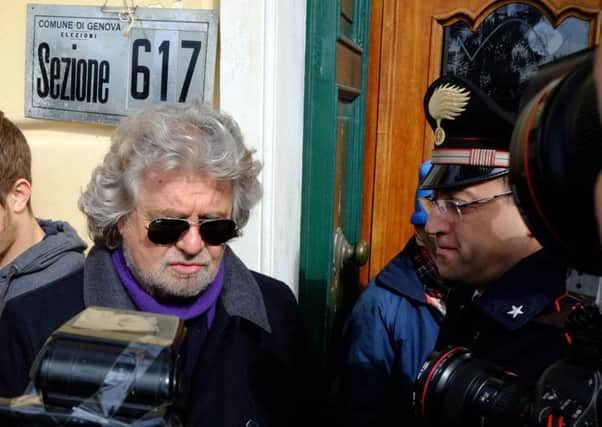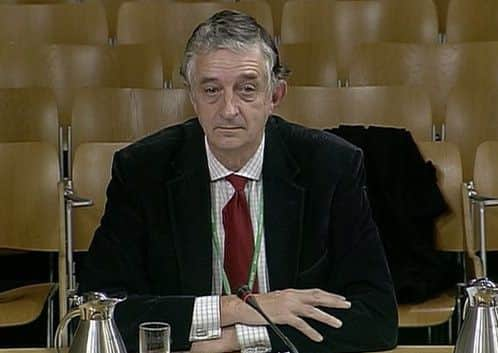The UK has kept populism at bay so far '“ but a new referendum may unleash it


All looks difficult and impossible for a long time, but a deal is struck at the eleventh hour. This is how it always is, he said, based on his long experience, and a successful outcome on Brexit remains likely.
The key thing in his judgement was that Brexit should be concluded without deep resentment on either side. After the Salzburg conference debacle last week there is plenty of resentment on the British side and it is less clear than ever what form a deal could take.
Advertisement
Hide AdAdvertisement
Hide AdThe Chequers proposal was always unlikely to be accepted and is now dead in the water, at least in its current form. What may happen now is that


Chequers will be watered down, to an extent likely to come close to the simple Canada-style free trade agreement that most Tory Brexiteers favour.
A free trade agreement is fine by the EU but will hit opposition in Parliament from Tory Remainers, and of course from Labour which will opportunistically oppose any Tory proposal.
However, Parliament may not be consulted at this stage since, for the present, all that needs to be signed off is the Withdrawal Agreement covering only the details of leaving and not the future trade relationships which will be a separate and non-binding paper.
Advertisement
Hide AdAdvertisement
Hide AdMuch of the Withdrawal Agreement is already settled, but the Irish border remains an impediment. The border issue was unnecessarily inserted into this divorce stage by the Irish Government backed by the EU.
As Barosso explained, the EU Commission likes to back small member states to demonstrate solidarity. At the recent Salzburg summit, the EU27 reiterated its whole-hearted support for the proposals on Ireland, which effectively mean Northern Ireland remaining inside the EU with a trade border between Northern Ireland and Great Britain.
The UK firmly rejects any exclusion of Northern Ireland from the rest of the UK and, unless this changes, there can be no Withdrawal Agreement – in which case we will have no deal, no transition period and the imposition of EU tariffs on UK exports, and probably UK tariffs on imports from the EU.
This is unlikely to mean food shortages, nor problems with aircraft landing rights or safety certificates, since contingency plans are being made and last minute patch-up agreements are likely in order to avoid a chaos which would embarrass and inconvenience all sides.
Advertisement
Hide AdAdvertisement
Hide AdSince free-trade is so strongly in the interest of both the UK and EU, I find it difficult to imagine any circumstance in which ‘no deal’ would actually be the outcome. A free trade agreement will in my view be agreed, albeit at the end of a transition period.
To get to the point of starting trade negotiations, the Irish border issue needs to be either agreed or pushed into the long grass. The difficultly is that Varadkar and Coveney have expended so much political capital on the EU’s border proposals that backing down is also difficult to imagine.
The Irish are, however, in a bind. No agreement means disaster for Irish agriculture, due to potentially high tariffs to sell into the UK
market. So Varadkar will have to choose between his political design for Northern Ireland and his rural economy. Since the economy must come first, a deal becomes overwhelmingly likely as Barosso predicts.
Advertisement
Hide AdAdvertisement
Hide AdThis leaves the intransigent Remainers inside the UK who want a second referendum in a attempt to stop Brexit altogether. Theresa May has ruled out another referendum and since her position looks secure until next March, this is likely to prevail. In any case time is running short to undertake the complex arrangements for a referendum.
A second referendum would be a disaster for democracy. The EU’s penchant for making people vote again when Eurocrats disliked the first result played no little part in British disdain for the EU. If the UK played the same trick, support would drain from British democracy.
Until now populism has been kept at bay in the UK, almost uniquely in Europe, and largely due to Brexit. A second referendum would give populism the boost which Brexit has until now kept at bay.
• Dr Graham Gudgin is chief economic advisor to the think-tank Policy Exchange, a University of Cambridge academic, and also visiting Professor at the University of Ulster